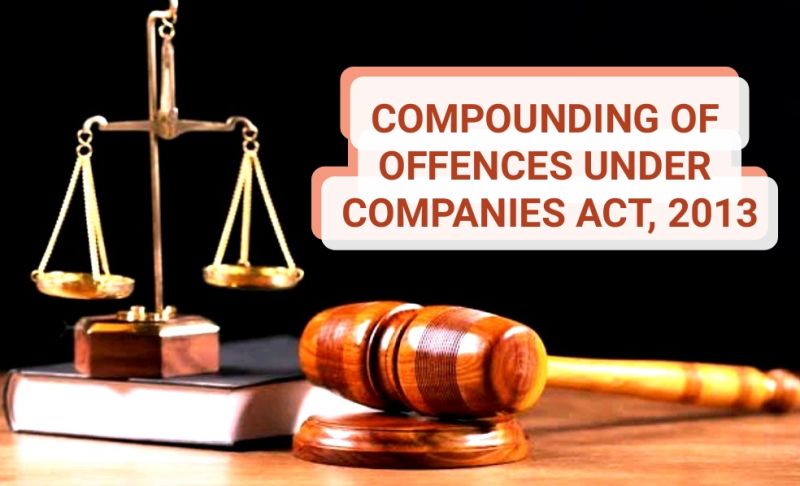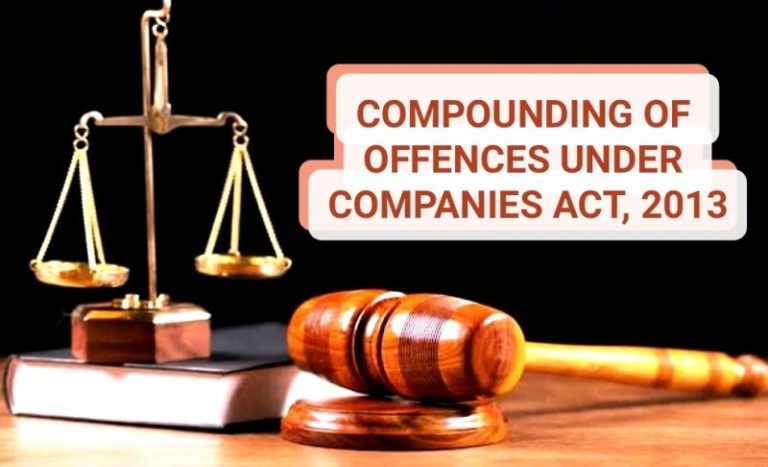Introduction
A Company during its course may have, inadvertent lapses in compliance with the provisions of the Companies Act, 2013, whether it is a delay in filing statutory returns, non-appointment of a key managerial personnel, or default in maintaining statutory registers, or such other defaults which attract penalties and legal consequences, which is governed by Section 441 of the Companies Act, 2013, and rules made thereunder, allowing companies to regularize non-compliances and mitigate legal risk.
What is Compounding?
Compounding is a legal process where an offence committed by a company or its officers is settled by paying a monetary penalty, instead of undergoing adjudication and facing legal consequences.
Authorities Involved
The Indian Company Law empowers the following authorities – to compound offences committed by a company or its officers:
- The Regional Director (RD) – For offences where the maximum fine does not exceed ₹25 lakh.
- The National Company Law Tribunal (NCLT) – For offences where the fine exceeds ₹25 lakh.
Types of Offences
Broadly there are two types of offences under the Companies Act:
1.Compoundable Offences: The offences which are punishable with fine only or fine or imprisonment or both.
2. Non-compoundable Offences: The offences which are punishable with imprisonment only or imprisonment and fine.
Who Can Apply for Compounding?
The following person may initiate an application for compounding in pursuance to the Indian corporate law:
- The company itself
- Any officer in default
- The Registrar of Companies (RoC)
Procedure for Compounding
The following process is required to be followed for compounding of offences:
1.Identify the non-compliance and ensure that the default is rectified.
2. Preparation of necessary documentation along with an application and proof of rectification of offence.
3. File the compounding application in e-Form GNL-1 along with the necessary documents with the concerned authority
4. Follow up with the authorities on the application and attend the hearing (if required).
5. Upon approval, the Company will be required to pay the Compounding fee within stipulated time.
6. The company must file the order with the RoC in Form INC-28.
Common Compoundable Offences
The following are some of the offences which are compoundable under the provisions of Companies Act, 2013:
- Section 56(6) – non-compliance relating to transfer and transmission of securities
- Section 64(2)- Failure to give notice to registrar for alteration of share capital
- Section 99 – default in holding Annual General Meeting
- Section 101(5) – failure to annexe explanatory statement to the notice
- Section 128(6) – failure to maintain books of accounts
- Section 203(5) – Failure to appoint Key Managerial Personnel
Benefits of Compounding
The following are the benefits of Compounding an offence:
- Avoid prosecution and criminal trial
- Reduces litigation costs and time
- Provides an opportunity for voluntary compliance
- Enhances goodwill and corporate governance
Recent Trends & Regulatory Focus
The Ministry of Corporate Affairs (MCA) encourages voluntary compliance and has been actively supporting compounding as a means of clearing the backlog of litigation. Further, through decriminalization of offences measures in recent amendments, many offences have been made compoundable to facilitate ease of doing business and avoid adjudication.
Conclusion
If your company has defaulted under any provision of the Companies Act, 2013, it is advisable to voluntarily rectify the default and apply for compounding to avoid the consequences of legal action. Timely compliance not only mitigates risk but also strengthens the company’s reputation and standing with regulators and stakeholders.



